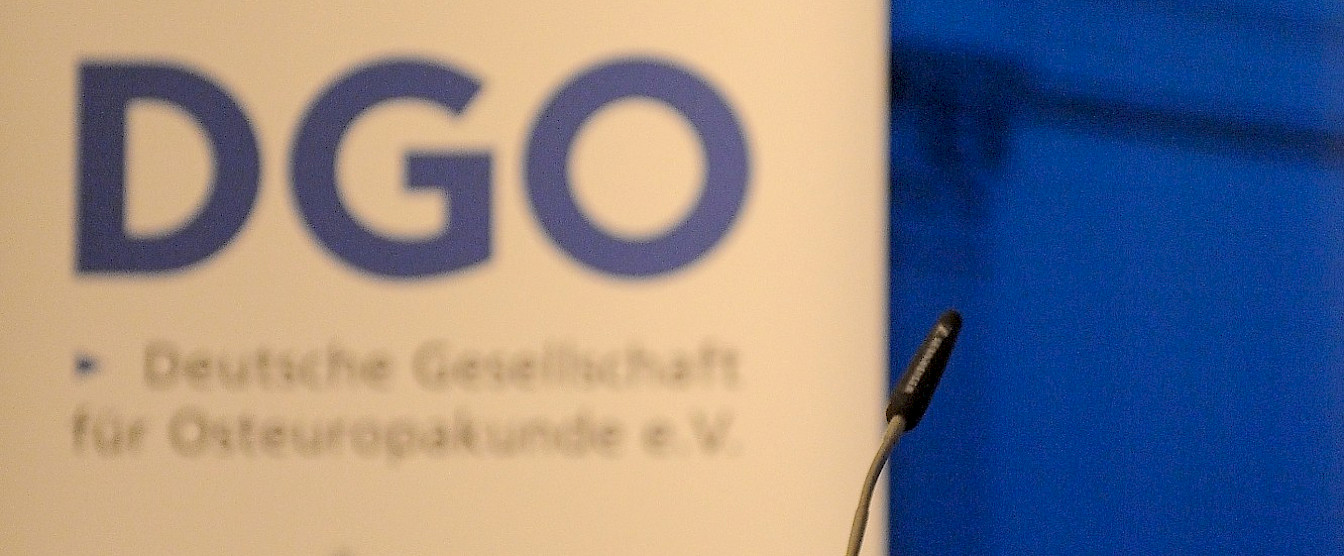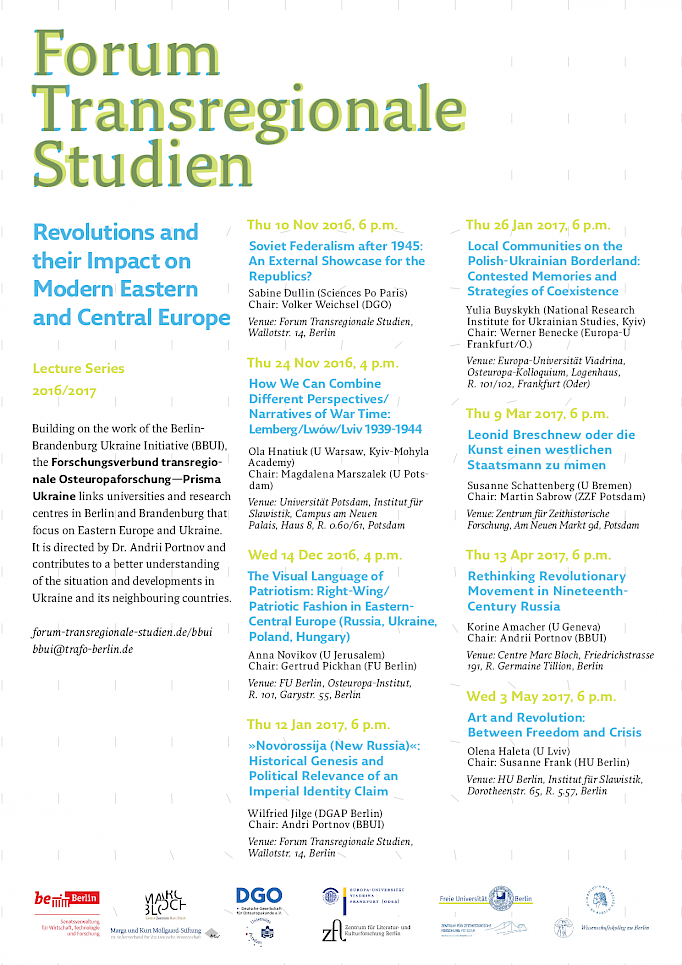
Lecture Series: Revolutions and their Impact on Modern Eastern and Central Europe
"Novorossija (New Russia)": Historical Genesis and Political Relevance of an Imperial Identity Claim
New Russia (Novorossija) is the historical term for the regions north of the Black and Azov Sea, which were incorporated into the Russian Empire in the middle and at the end of the 18th century and today belong to Ukraine. In the current Russian-Ukrainian conflict, "New Russia" has been imagined by Russian pro-Kremlin politicians and pro-Russian separatists as a monolithic "South East" of Ukraine: It is supposed to be inhabited exclusively by Russian speaking "compatriots" of the Russian Federation and to be orientated politically towards Moscow. With the help of these concepts the respective groups tried to legitimate the protective role of the Russian state for "its compatriots" as well as the annexation of the Crimean peninsula and the military aggression against Ukraine in 2014.
The lecture shows that the concept of "New Russia" is not a product of the Russian-Ukrainian conflict but has in fact been developed by Russian ideologues and pro-Russian intellectuals and academics in Ukraine since the end of the 1990s. Wilfried Jilge analyses the genesis and function of the concept of "New Russia" in the context of the wider geopolitical concept of the "Russian World" since the 1990s. He asks whether and if so, to what extent "New Russia" is of importance for the perception of the Ukrainian state and nation in Russia.
Wilfried JILGE is a historian of Eastern Europe and program officer at the DGAP’s Robert Bosch Center for Central and Eastern Europe, Russia, and Central Asia in Berlin. His areas of specialization are contemporary history and politics in Ukraine and Russia, and his research interests include German and European relations with Ukraine in the context of EU integration and the EU’s neighborhood policy; the current Russian-Ukrainian crisis; domestic and foreign-policy implications of the Ukraine-Russia crisis; and new currents of nationalism, Slavophilism, geopolitical identity, and identity-based politics in post-Soviet Russia.
Jilge worked as a research fellow at the Centre for the History and Culture of East Central Europe (GWZO) at the University of Leipzig (2001-2010), at the Institute of Slavonic Studies at the University of Leipzig (2012-2014), and has spent considerable time in Kyiv and Moscow conducting research. Since 2015, he is an associate scholar at St. Gallen University’s Center for Governance and Culture in Europe. He has advised members of the German Bundestag and European Parliament on matters relating to Ukraine. He serves on the board of the ‘Kyiv Conversations’ (‘Kiewer Gespräche’), a German-Ukrainian civic forum of which he is a founding member.
Die Veranstaltung findet im Rahmen der Vortragsreihe "Revolutions and Their Impact on Modern Eastern and Central Europe" statt, die vom interdisziplinären Forschungsverbund "Prisma Ukraina" ausgerichtet wird. Zu diesem Verbund gehören Forschungseinrichtungen in Berlin und Brandenburg, die sich mit Osteuropa und der Ukraine beschäftigen. Der Verbund ist am Forum Transregionale Studien angesiedelt und baut auf der Arbeit der Berlin-Brandenburg Initiative (BBUI) auf, deren Partner die DGO ist. Er organisiert Veranstaltungen und lädt Wissenschaftler aus Osteuropa und anderen Regionen nach Berlin ein. Ziel ist es, zu einem besseren Verständnis der Entwicklungen in der Ukraine und ihrer Nachbarländer beizutragen.
Anmeldung: prisma[at]trafo-berlin.de
Veranstaltungsprogramm
Veranstaltungsprogramm (PDF, 520 kB)
Datum:
12.01.2017, 18:00 Uhr
Ort:
Forum Transregionale Studien Berlin
Wallotstr. 14
14193 Berlin
Sprache(n):
Englisch
Veranstaltungsprogramm (PDF, 520 kB)

Veranstalterin:
Deutsche Gesellschaft für Osteuropakunde